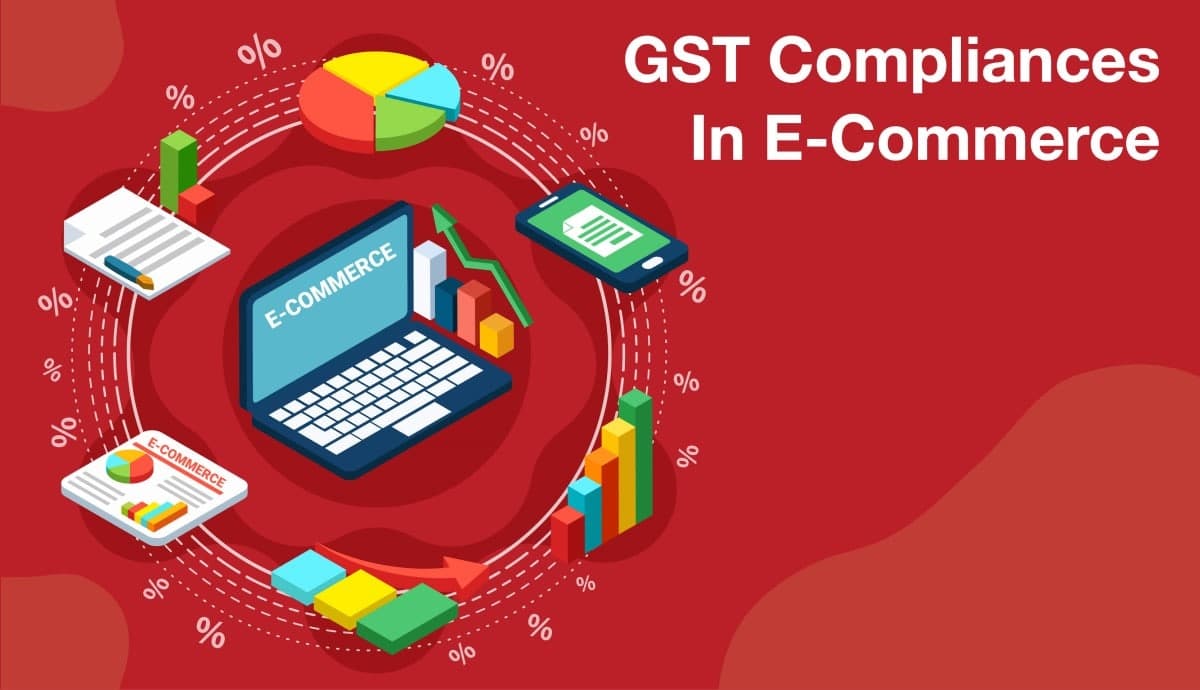

Here are key points to consider for Gst compliance for ecommerce
GST Registration
E-commerce operators are require to obtain GST registration, regardless of their turnover. Online registration for GST can be conveniently completed through the GST portal.
Collecting and Depositing GST
E-commerce operators are responsible for collecting GST on behalf of the suppliers selling through their platform. GST should be collected at the applicable rates (CGST, SGST/UTGST, or IGST) and deposited with the government within the prescribed timelines.
Tax Invoices and Documentation
E-commerce operators should issue tax invoices or electronic invoices to the customers for the supplies made through their platform. These invoices should contain all the required details as per GST rules, including the GSTIN of the operator and the supplier, description of goods or services, tax rates, and amounts.
TCS (Tax Collected at Source)
As an e-commerce operator, you may be required to collect Tax Collected at Source (TCS) on certain supplies made by the sellers on your platform. TCS should be collected at the prescribed rate and deposited with the government.
TCS Returns and Compliance
E-commerce operators need to file periodic TCS returns, such as GSTR-8, providing details of the supplies made and the TCS collected. These returns should be filed within the specified due dates.
Input Tax Credit (ITC)
E-commerce operators can claim input tax credit on the GST paid on their inputs, such as goods or services used in the course of their business. However, certain conditions need to be met, and proper documentation should be maintained to support the ITC claims.
Compliance with Return Filing
E-commerce operators are require to file regular GST returns, such as GSTR-1 (outward supplies) and GSTR-3B (summary return). The frequency and due dates for return filing may vary based on turnover and other factors.
Vendor Onboarding and Compliance
В E-commerce operators should ensure that the sellers/vendors on their platform are also GST compliant. They should verify the GST registration status of their vendors and ensure that the sellers are complying with their GST obligations.
Record Keeping
E-commerce operators should maintain proper records of their transactions, invoices, and other documents for the prescribed period as per GST rules.
It is important to note that the above information provides a general overview, and the specific compliance requirements may vary based on the nature of your e-commerce business and other factors. It is recommend to consult with a tax professional or refer to official GST resources for accurate and updated compliance obligations for e-commerce operators.
FAQs:
For further details visit:В https://vibrantfinserv.com/
Whatsapp:В В https://wa.me/918130555124
Mail ID:В В В В В В operations@vibrantfinserv.com
Web Link:В В В https://vibrantfinserv.com
FB Link:В В В В В В https://fb.me/vibrantfinserv
Insta Link:В В https://www.instagram.com/vibrantfinserv2/
Twitter:В В В В В В https://twitter.com/VibrantFinserv
LinkedIn:В В В https://www.linkedin.com/in/vibrant-finserv-62566a259/
